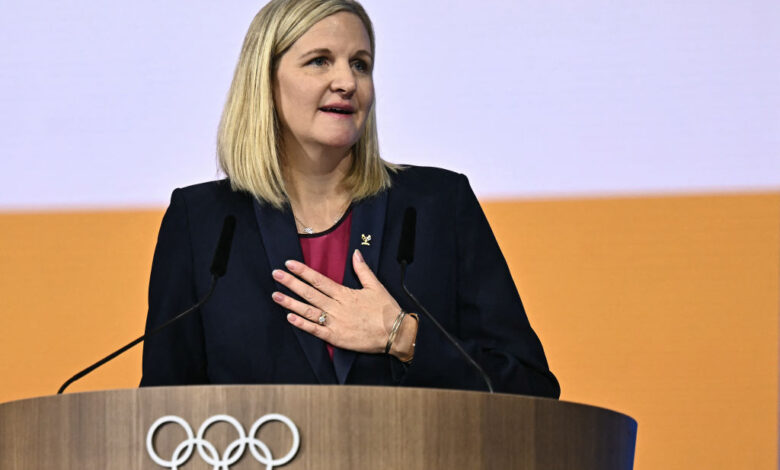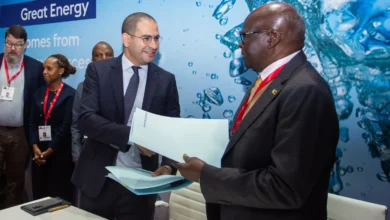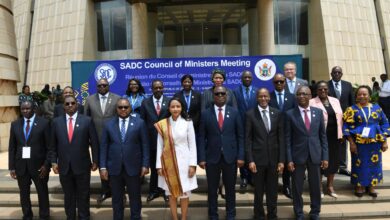Kirsty Coventry Steps Into History as IOC’s First Female and African President Amid Global Shifts

The Olympic world Kirsty Coventry inherits today as she officially begins her term as the first-ever female and African president of the International Olympic Committee (IOC) is vastly different from the one that existed just three months ago when she was elected. And the global dynamics unfolding around her signal a leadership journey that will require sharp diplomacy, firm neutrality, and adaptive strategy.
Coventry, a two-time Olympic champion swimmer from Zimbabwe and former Sports Minister in her home country, takes over an organisation still basking in the glow of the highly praised 2024 Paris Olympics. Yet she steps into a role that already demands difficult conversations—chief among them, navigating political friction tied to the 2028 Summer Games in Los Angeles.
The United States, which will host the next Olympic spectacle, is under a shifting political climate. President Donald Trump’s recent comments labelling Los Angeles a “trash heap” and his renewed emphasis on travel bans have drawn international scrutiny. Some of the countries represented at the Games could find themselves restricted from entering the U.S., even as Olympic exemptions remain promised.
Already, Senegal’s women’s basketball team faced visa denials, according to the country’s prime minister. For Coventry, a first face-to-face meeting with President Trump is high on the agenda as she steps into the sensitive world of Olympic diplomacy. Outgoing IOC president Thomas Bach weathered his own stormy era, marked by doping scandals, global pandemics, Korean missile tensions, and corruption in host countries. Coventry inherits a far more financially stable and strategically aligned IOC—but one that must still navigate a future full of political and cultural crosscurrents.
On her first full day in office, Coventry has called a closed-door session with the IOC’s 109 members, themed “Pause and Reflect.” Her goal: encourage open dialogue, inclusive leadership, and an end to top-down decision-making. “The way in which I like to lead is with collaboration,” she said. “I like people to say: ‘Yes, I had a say and this was the direction that we went.’ That way, you get really authentic buy-in.”
This leadership style signals a significant shift from Bach’s centralised governance. It also suggests greater openness in major decisions—such as who will host the 2036 Summer Olympics. Coventry’s victory was interpreted by many as a boost for India’s Olympic ambitions, particularly with Nita Ambani—philanthropist and wife of business magnate Mukesh Ambani—playing a key role in India’s bid and maintaining a close rapport with Coventry.
India is competing against Middle Eastern heavyweights Qatar and Saudi Arabia, both of which are also angling for the 2036 Games. A potential regional bid could balance political tensions and infrastructure demands, but the path to awarding the Games may change under Coventry’s vision. “It is an open question,” she said. “For me as a president I need to be able to remain neutral.”
Coventry’s leadership may also be tested by Russia’s standing within the Olympic movement. Though President Vladimir Putin offered his congratulations following her win and the Kremlin acknowledged her global stature, Russia’s Olympic Committee remains suspended for appropriating sports organisations in occupied Ukrainian territories. The suspension is unlikely to be lifted soon, especially with the 2026 Winter Olympics in Milan fast approaching. Coventry plans to ask a task force to examine the IOC’s policy on athletes from nations involved in ongoing wars and conflicts.
Beyond the geopolitics, Coventry remains committed to ensuring that the IOC remains athlete-focused, diverse, and responsive. Her own sporting legacy and ministerial experience position her uniquely to guide the Olympic movement through a new era defined by both unity and complexity.
As she begins this historic term, Kirsty Coventry carries the hopes of not only her continent but also a world seeking stronger representation, greater inclusion, and transparent leadership. And she does so with humility and resolve, determined to remain, as she puts it, “always humble, always approachable.”




